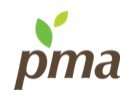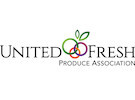As part of the Coronavirus Farm Assistance Program, the U.S. Department of Agriculture announced that it will provide up to $2.1 billion in direct payments to specialty crops producers. The payments will be based on losses where prices and market supply chains have been impacted and will help producers facing additional adjustment and marketing costs resulting from lost demand and short-term oversupply for the 2020 marketing year as a result of COVID-19.
Producers that fall into one of the following categories may be eligible to receive a direct payment:
- Sales with a price loss of 5% or more between January 15 and April 15, 2020. Almonds, artichokes, beans, broccoli, cabbage, carrots, cauliflower, sweet corn, cucumbers, eggplant, lemons, iceberg and Romaine lettuce, dry onions, peaches, pears, pecans, bell and other types of peppers, rhubarb, spinach, squash, strawberries and tomatoes are eligible.
- Shipments that left the farm by April 15 and spoiled due to no market or for which no payment was received. All specialty crops are eligible.
- Shipments that have not left farm or mature crops that remained unharvested by April 15. All specialty crops are eligible.
Beginning on May 26, 2020, producers of all eligible commodities may apply for assistance through their local USDA Farm Service Agency Service Center. Specialty crops producers are encouraged to complete the application forms ahead of the application date. Producers can locate their service center and find application forms and additional information here.
The payments are one of several measures USDA is taking to support America’s specialty crops industry which has been greatly impacted by the COVID-19 national emergency. In addition to the direct payments, USDA has implemented the Farmers to Families Food Box Program. More information about the food box program is available here.
USDA will also make an additional $873.3 million in Section 32 purchases of specialty crops products for distribution to food banks. The use of these additional Section 32 funds will be determined by industry requests, USDA agricultural market analysis and food bank needs. The latest purchase solicitations are available here.
Mixed industry responses
While this new plan offers more room and support for farmers, many industry leaders also emphasized that it still is not enough to fully help the farmers who have suffered under the pandemic, and that more help is needed.
A statement from the Produce Marketing Association reads: "PMA is pleased that the USDA is moving forward to provide much needed resources to produce growers however, more aid is needed to protect the supply chain and provide the support to ensure our industry can continue to supply consumers with nutritious produce. We also look forward to the future Notice of Funding Availability (NOFA) in CFAP that will address much needed financial support for floriculture/ horticulture growers."
Tom Stenzel, President & CEO, United Fresh Produce Association responded: “We applaud the announcement of a direct payment program for fruit and vegetable growers. That being said, we understand the resource and policy constraints that have been placed on USDA and the Administration and will work closely with Congress on implementing a stronger and more effective program in the next round of discussion with Capitol Hill. It is essential that USDA and Congress focus on programs that target resources for growers, grower-shippers, and others in the produce distribution supply chain that had direct job losses and immediate financial impact from government mandated closures.”
Kam Quarles, CEO, National Potato Council, states that this plan is not enough to help the potato industry: “Given the scope of this crisis, we knew the initial funding would be insufficient to meet the need of family farms. Based upon the limited resources announced today under this direct payment program, the potato industry is strongly urging Congress to act rapidly to provide more resources and flexibility to fill this huge gap and maintain producers’ livelihoods.”
Dave Puglia, President & CEO, Western Growers, also emphasizes that the plan is not enough to fully help the farmers who have suffered severe losses, saying: “The Administration is doing what it can to help as many farmers as possible from a limited source of relief funds. The tough part of this is that even with the increased cap on relief payments to individual farmers, the actual losses are far greater for many. By way of example, the average sized lettuce farm in the West is 250 acres and requires about $5,000 per acre to grow the crop. The relief payment cap means the farmer who lost the entire crop when the food service industry was closed will have no relief for all but 50 acres of that loss.”
Mike Joyner, President, Florida Fruit & Vegetable Association, expressed his appreciation of the new efforts: “We appreciate the administration’s efforts to help agriculture overcome many of the challenges we have faced during this pandemic. Florida specialty crop producers experienced devastating losses from the shutdown of the foodservice supply chain and slowdown at retail – losses far greater than the direct payment limits announced today will cover. We will continue to work with Congress and the administration to secure additional relief for hard-hit Florida growers of fresh fruits and vegetables.”
 For more information:
For more information:
Siobhan May
Produce Marketing Association
Email: SMay@pma.com
Tel: +1 (302) 781-5855
www.pma.com
 Mary Coppola
Mary Coppola
United Fresh Produce Association
Tel: +1 (202) 303-3425
mcoppola@unitedfresh.org
www.unitedfresh.org
